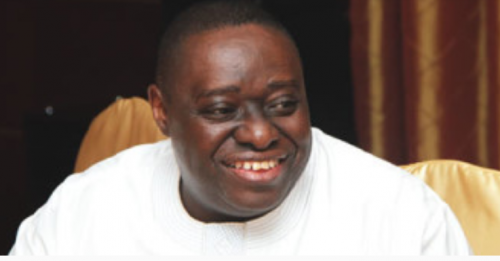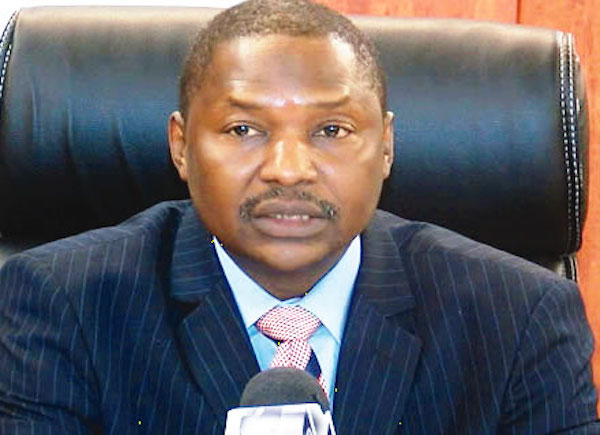Tragedy hit the Nigerian journalism profession late Wednesday as the Chairman of Punch Nigeria Limited, publishers of Punch newspapers, Wale Aboderin, died after a brief illness.
The Punch was founded by Wale’s father, the late Chief James Olu Aboderin. Chief Aboderin was succeeded as Chairman by the late Chief Moyo Aboderin. Chief Ajibola Ogunshola took over from Moyo Aboderin after his death.
Wale, a trained commercial pilot who took over from Ogunshola, brought professionalism to the operations of the newspaper house, seen as Nigeria’s most influential newspaper.
His tenure is believed to have brought changes to the editorial quality, management and fortunes of Punch.
Family members who were contacted said arrangements are on for burial plans.
“A statement will be issued shortly”, one of them said
A source, who was Wale’s senior at Government College, Ibadan, Oyo State, described him as a God-fearing Nigerian.
“He was my school son at Government College Ibadan. Very painful loss to me personally. Like his father, gone too soon. May his soul rest in peace”.
Wale Aboderin was also the Chairman of the Board of African Media Initiative (AMI). He took over from the maiden chairman, Trevor Ncube.
Ncube, who is the Executive Vice-Chairman of South Africa’s Mail and Guardian, steered the organisation since its inception in 2008.
Aboderin was a trained commercial pilot at the Burnside-Ott Flying School, Florida, the United States (U.S.).
 He was founder and owner of Dolphins Basketball Club, a leading African female basketball club, with local and continental honours.
He was founder and owner of Dolphins Basketball Club, a leading African female basketball club, with local and continental honours.
He was chairman of the Lagos State Basketball Association and a former member of the Nigerian Handball Federation.
PUNCH (Nigeria) Limited was registered on August 8, 1970, under the Companies Act of 1968 to engage in the business of publishing newspapers, magazines and other periodicals of public interest.
It was designed to perform the tripartite functions of the popular mass media: informing, educating and entertaining Nigerians and the world at large. The company has a Board of Directors, hereinafter referred to as the Board, which is the highest policy-making organ of the company.
Its policies and directives are implemented by a Management team led by the Managing Director (MD) who is the Company’s Chief Executive Officer.
As a corporate business entity, the company exists to make profit and by doing so, seeks to improve the lot of its owners and employees and also contribute its quota to the country’s economic development.
In 1971, the company made its debut with the publication of Happy Home, a glossy family-oriented magazine. Its first editor was Bunmi Sofola.
On Sunday, March 18, 1973, its first weekly newspaper, Sunday PUNCH, hit the newsstands. Edited by Ajibade Fashina-Thomas, the newspaper was designed “to give our country a unique Sunday paper which combines the best in serious and popular journalism” with refreshing information and entertainment.
THE PUNCH, a daily tabloid followed on November 1, 1976. Designed as “the lively paper for lively mind “, it was to address “most of the shortcomings and obvious inadequacies of the Nigerian newspapers, both old and new” and to be “swingingly elegant as well as socially concerned and seriously responsible”. Its pioneer editor was Dayo Wright. However, by the 1980s, the two tabloid had been repackaged to meet the pressing demand of changing political, social and economic needs of their teeming readers.
The journey has not been easy. In its bid to perform its constitutional assigned social responsibilities, the company has been shut several times, and many of its employees harassed and detained by successive military governments.
On April 29, 1990, a week after an attempted coup d’état against the Federal Military Government, the company was closed down.
The closure lasted a month while the then Deputy Editor of THE PUNCH, Chris Mammah, was detained for 54 days. Again in July 1993, the Federal Military Government shut the company’s premises, vide Decree No 48 of 1993, and banned all its publications from circulating in the country. The closure followed the political crisis caused by annulment of June 12, 1993 presidential election.
On November 17 of the same year, the proscription order was repealed vide the Decree No 115 of 1993.
The Federal Military Government struck on the July 24, 1994, and proscribed all the titles including TOPLIFE, which had been revived and published as a weekly magazine then.
The then editor of THE PUNCH, Bola Bolawole, was detained for three days in his office in the old building. During the closure, the government ignored a court order that it should vacate the premises of the company and also pay the sum of N25 million and N100,000.00 respectively to the company and Bolawole.
It was not until October 1, 1995 that government de-proscribed the publication vide a national day broadcast by the Head of State.
In spite of all these, the company has pledged not to abdicate its responsibilities to the country.
For years, the Research and Marketing Services (RMS) Lagos has rated Punch as Nigeria’s most widely-read newspaper.


























